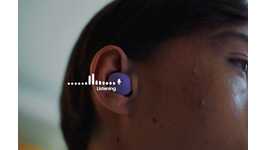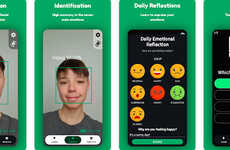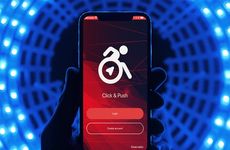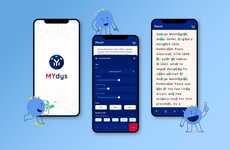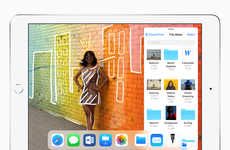
The MagnusCard App Helps People with Autism Carry Out Daily Tasks
Rahul Kalvapalle — April 3, 2018 — Tech
References: magnusmode & itunes.apple
MagnusCards is an innovative new smartphone autism app that is designed to help people living with autism, as well as other cognitive conditions, to carry out different day-to-day tasks.
Developed by Nadia Hamilton, whose brother Troy lives with autism and doesn't have the ability to communicate verbally, the MagnusCards autism app offers step-by-step guides to enable users to negotiate day-to-day life in different environments. The app is looking to partner with different organizations to accomplish this, with the Pearson International Airport in Toronto already signing up to make travel easier for people with autism.
Ultimately, this app is a fine example of how smartphone technologies can be used to empower people living with cognitive disabilities.
Developed by Nadia Hamilton, whose brother Troy lives with autism and doesn't have the ability to communicate verbally, the MagnusCards autism app offers step-by-step guides to enable users to negotiate day-to-day life in different environments. The app is looking to partner with different organizations to accomplish this, with the Pearson International Airport in Toronto already signing up to make travel easier for people with autism.
Ultimately, this app is a fine example of how smartphone technologies can be used to empower people living with cognitive disabilities.
Trend Themes
1. Assistive Autism Apps - Developing user-centric assistive mobile apps can revolutionize healthcare and improve the quality of life for people living with disabilities.
2. Step-by-step Guides - Incorporating step-by-step guides using mobile apps can assist people living with cognitive disabilities to better navigate and engage in daily activities.
3. Collaborative Partnerships - Establishment of collaborative partnerships between tech companies and organizations to improve the accessibility of public spaces for people with disabilities.
Industry Implications
1. Healthcare - Integrating assistive mobile apps in healthcare can streamline patient care and improve favorable health outcomes.
2. Technology - Developing user-centric technologies can provide innovative solutions to promote inclusion and accessibility for groups often marginalized from mainstream technology.
3. Travel and Hospitality - Partnering with tech companies to develop accessible tourism can enhance the travel experience for people with disabilities and improve customer satisfaction.
2.2
Score
Popularity
Activity
Freshness


